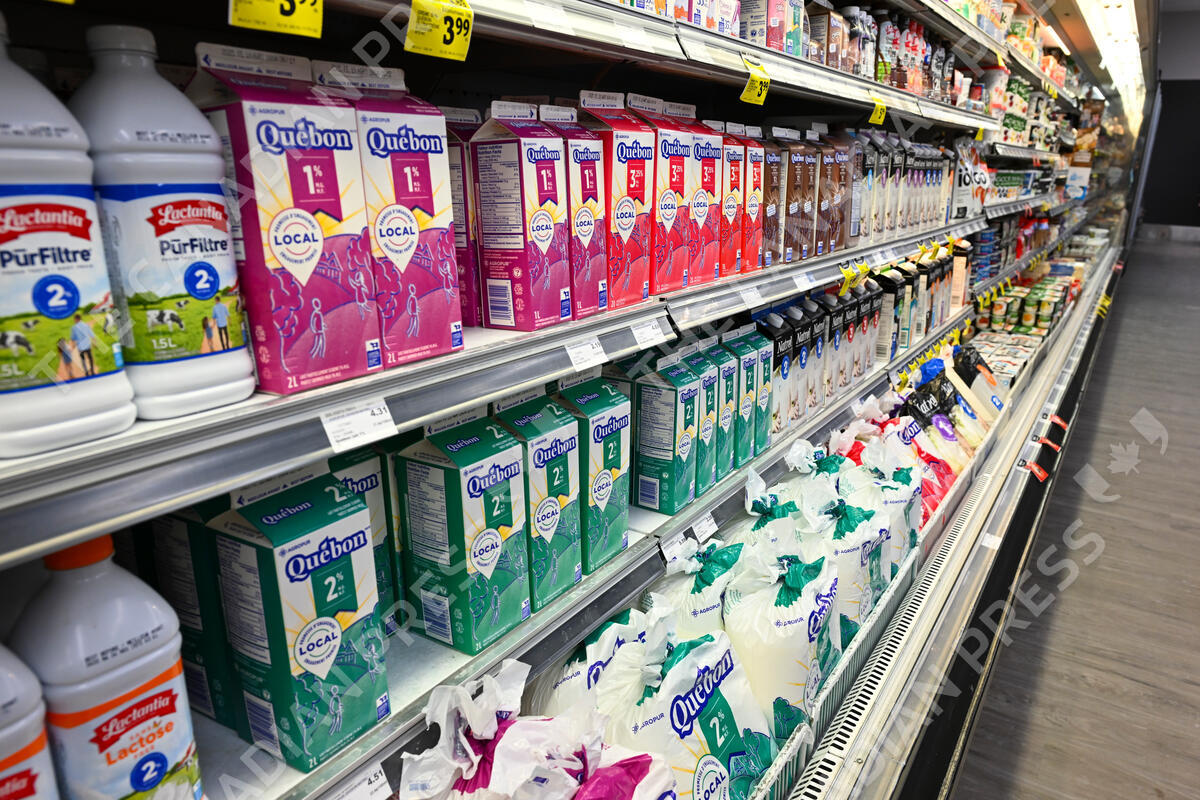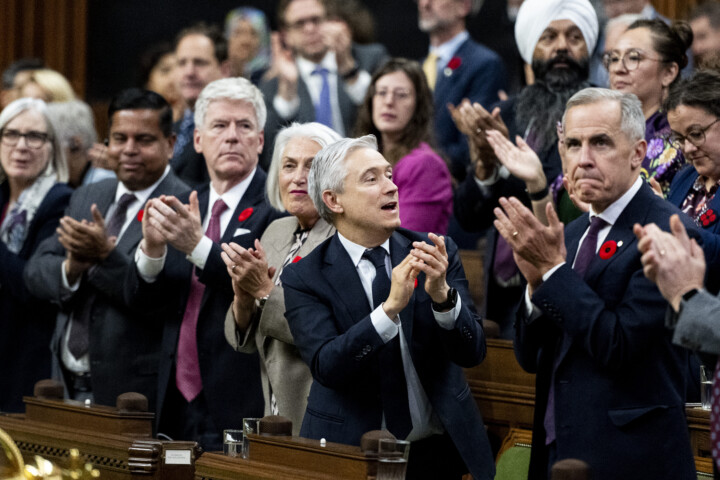The U.S. Trade Commission’s launching of an investigation this week into the Canadian dairy industry allegedly dumping vast amounts of dairy protein–at an artificially lowered cost–into the $14 billion USD international market has reignited a long-standing trade dispute between the two nations. The U.S. International Trade Commission (ITC) also revealed it would conclude its investigation into the Canadian dairy supply management’s alleged violations of CUSMA in March 2026, three months prior to the trade agreement being open to renegotiations.
In response to the investigation, the Canadian government said in part, “Canada is too small and too focused on satisfying domestic demand to be an important competitor in global markets.”
The upcoming findings from the ITC will likely put Canada’s supply-management system directly in the crosshairs of U.S. President Donald Trump’s administration. Canada’s supply management of dairy, eggs, and poultry has long been a persistent irritant in trade relationships, including with the E.U. The Hub spoke with David Clement, trade policy analyst with Consumer Choice Center, to better understand the implications of this dispute and what it means for future Canada-U.S. trade negotiations.
Here are five key takeaways from the conversation:
1. The U.S. position reflects a “can’t have it both ways” argument on supply management
The U.S. ITC is signaling to the Canadian government that it cannot justify protecting its domestic dairy market through supply management while simultaneously exporting below-market-price dairy proteins to the United States.
2. This dispute has deep bipartisan roots in American politics
Both Republican and Democratic administrations have requested Canada’s dairy protectionism be dropped, with formal challenges launched under Trump, Biden, and now Trump again.
3. Wisconsin’s swing state status adds political urgency to the issue
The Trump administration sees dairy market access as a way to secure Wisconsin farmers’ support, potentially making the state less competitive in future elections.
4. Canada’s approach is inconsistent with its other agricultural sectors
Unlike beef, pork, grains, or produce, dairy remains heavily protected, creating what critics see as an unfair trading relationship
5. The policy hurts Canadian consumers during a cost-of-living crisis
Supply management artificially inflates prices for basic food items while protecting fewer than 10,000 farmers across the country.
Clement says the latest ITC investigation helps further reveal a fundamental contradiction in Canadian policy. “You cannot say you’re going to keep supply management so that you can meet domestic demand while also exporting this one limited portion of the market into the U.S.,” he explained.
The commission’s concern reflects the sensitive nature of dairy markets, where small percentage changes can dramatically alter competitive dynamics. This sensitivity has become more pronounced as international competition intensifies, with countries like New Zealand emerging as major players in global dairy exports—ironically, after abandoning their own supply management system.
The U.S. position reflects a “can’t have it both ways” argument on supply management
Clement says the latest ITC investigation helps further reveal a fundamental contradiction in Canadian policy. “You cannot say you’re going to keep supply management so that you can meet domestic demand while also exporting this one limited portion of the market into the U.S.,” he explained.
The commission’s concern reflects the sensitive nature of dairy markets, where small percentage changes can dramatically alter competitive dynamics. This sensitivity has become more pronounced as international competition intensifies, with countries like New Zealand emerging as major players in global dairy exports—ironically, after abandoning their own supply management system.
This dispute has deep bipartisan roots in American politics
The current challenge represents the continuation of a decades-old grievance that transcends partisan politics in Washington. “Trump very loudly complained about this in his first term. The Biden administration complained about it, launched formal challenges with the WTO, and now the Trump administration is back here again,” Clement noted in an interview with The Hub.
This consistency across administrations underscores how deeply entrenched the issue has become in U.S. trade policy. The dispute has also complicated Canada’s relationships with other trading partners, including the European Union and the U.K., where dairy market access has been a sticking point in various trade negotiations.
Wisconsin’s swing state status adds political urgency to the issue
Beyond trade policy, Clement sees clear domestic political calculations driving the Trump administration’s approach. Wisconsin remains a crucial swing state, and dairy farming represents a significant constituency there. “How do you help sway Wisconsin to make sure that you have it and it becomes less of a swing state? You give Wisconsin dairy farmers access to the Canadian market,” he explained.
The political dimension extends to future Republican electoral strategy, with the administration already considering how to maintain support in key agricultural states.
Canada’s approach is inconsistent with its other agricultural sectors
Clement argues that Canada’s selective protection of dairy creates an untenable position in trade relationships. “We don’t do this for beef, we don’t do it for pork. We don’t do it for grains, we don’t do it for vegetables or fruits,” he pointed out, questioning why dairy receives special treatment.
This inconsistency undermines Canada’s credibility as a free-trading nation, particularly when criticizing protectionist policies elsewhere. “It’s a very Trumpy policy to defend supply management,” Clement observed, noting the irony of defending high tariffs while simultaneously criticizing similar measures from other countries.
The policy hurts Canadian consumers during a cost-of-living crisis
Perhaps most significantly, Clement argues that supply management imposes unnecessary costs on Canadian families at a time when affordability is a major concern. “Why are we maintaining this policy that artificially inflates the price of some of the most important food items out there to protect slightly less than 10,000 farmers?” he asked.
“You’d probably see grocery prices deflate in the supply-managed goods a fair amount. So the estimates from before the pandemic were about $500 a year per family [if supply management in Canada was scrapped]. That might not sound like a lot to many people, but if you’re living at the poverty line, that’s enough to [lift] upwards of 189,000 Canadians above the poverty line,” added Clement, who previously wrote for The Hub a DeepDive on the benefits of scrapping supply management in Canada.
With record numbers of Canadians relying on food banks and ongoing cost-of-living pressures, the policy’s consumer impact has become harder to justify. The protection of a relatively small number of producers comes at the expense of millions of consumers facing higher prices for basic staples like milk, cheese, and butter.
This commentary draws on a Hub podcast. It was edited using AI. Full program here.









